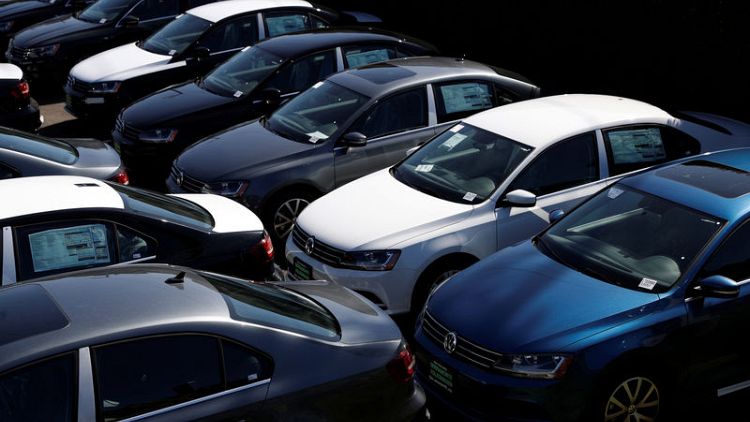By David Shepardson
WASHINGTON (Reuters) - The U.S. Commerce Department is set to meet a Sunday deadline to deliver its recommendations to President Donald Trump on whether imported vehicles and parts pose a national security risk and to outline options on how to address the issue, officials said Thursday.
Trump is expected to initially keep the department's recommendation secret as he focuses on China and other pressing trade issues. He may not disclose details until he decides on whether to impose tariffs, a decision automakers believe could take weeks or months.
Last May, Trump said he was considering tariffs of up to 25 percent on imported vehicles. Automakers and foreign governments opposed the idea.
In June, Trump said the Commerce investigation about whether vehicle imports pose a national security risk would be done by the end of July. In November, Trump again threatened to impose tariffs after General Motors announced thousands of job cuts.
But in the face of strong opposition from Congress and automakers, Trump has moved slowly on the issue.
Major automakers said last year that tariffs of 25 percent on imported cars and parts would raise the price of U.S. vehicles by $83 billion (65 billion pounds) annually and cost hundreds of thousands of jobs.
They argued there is no evidence auto imports pose a national security risk. Canada and Mexico each won duty-free access to 2.6 million vehicles as part of a new North American free trade deal even if the administration moves ahead with the tariffs.
Administration officials have said tariff threats were a way to win concessions from Japan and the European Union at the bargaining table. Last year, Trump agreed not to impose tariffs as long as talks were proceeding in a productive manner.
Several Republican senators oppose tariffs. Some back legislation to restrict presidential authority to impose tariffs on national security grounds.
Senator Charles Grassley, a Republican who chairs the Finance Committee, said Thursday new auto tariffs would damage the U.S. economy. "Raising tariffs on cars and parts would be a huge tax on consumers who buy or service their cars, whether they are imported or domestically produced," he said.
Trump has urged the EU to drop its 10 percent tariff on imported vehicles. The U.S. passenger car tariff is 2.5 percent, while it imposes 25 percent tariffs on pickup trucks.
The Alliance of Automobile Manufacturers, whose members include General Motors Co, Volkswagen AG, Toyota Motor Corp, has warned tariffs would boost imported car prices nearly $6,000 on average.
(Reporting by David Shepardson; Editing by David Gregorio)



